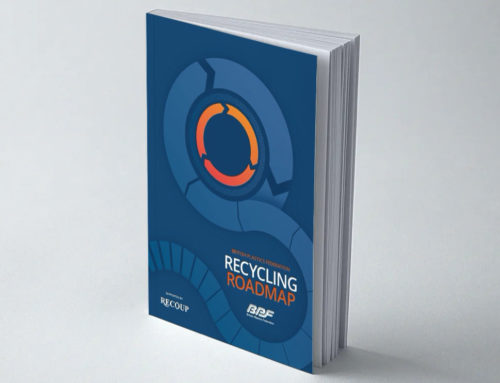ReVentas Receives huge European Grant. Hear all about it from CITYA.M.
Portugal’s off the list. Croatia’s on the list. Spain and France have been on the list for a while. As far as Europe is concerned, the headlines are dominated by the latest quarantine rules for people returning to Britain from holiday hotspots.
It’s tough to keep track of the changing rules and timings. On a similar note, other Europe-related deadlines are looming with significance to UK-based innovators and investors – UK start-ups’ eligibility for grants under European Union (EU) funding schemes.
Rather like queuing in a car approaching the Port of Calais, it’s a case of inching towards an exit from the Continent. Slowly but surely UK entities’ eligibility to apply for (and therefore potentially win) EU innovation funding is receding as the two sides’ negotiators strive to agree an overall post-Brexit deal.
Clock ticks on EU-UK political negotiations
One of the highest profile EU funding programmes is Horizon 2020, which ultimately seeks to improve Europe’s success at creating world-leading science-based innovative companies.
UK entities continue to be eligible for grants until the closure of its current, seven-year span, which is 2014-2020 (successful UK applicants would be entitled to receive grant funding until the final closure of their projects, even if the closure date is after the end of the Brexit transition period).
UK authorities – such UK Research & Innovation and central government – provide summary updates as the political negotiations continue, with the 541-page ‘Withdrawal Agreement’ the legal backdrop.
But the Brexit clock is ticking and UK eligibility is falling to reflect the political reality: as of 1 February 2020, for example, UK entities have no longer been eligible to apply for equity support from the European Innovation Council (EIC) ‘Accelerator’ initiative.
Nonetheless, EU grants to UK businesses do – for now – keep coming. Successful applicantsin the latest round of Accelerator funding were announced last month, including two British start-ups – Deep Branch Biotechnology of Nottingham and ReVentas of Scotland – among a total of 64 projects receiving €307m (£276m) in total.
Financial support ‘vital’ for start-ups
Deep Branch is a biotech company using microbes to convert carbon-dioxide from industrial emissions into high-value proteins for use in animal feed.
The company is leading project called ‘REACT-FIRST’, described as the UK’s first scalable route to sustainable protein generation that captures carbon dioxide released from bio-energy generation at power stations. Earlier this year, it also secured a £3m Innovate UK grant to support the launch of REACT-FIRST, a consortium of ten industry and academic partners including Drax and Sainsbury’s.
REACT-FIRST will obtain critical data about a new single-cell protein, called Proton, used in fish and poultry feed, which has the potential to “sustainably transform” the aquaculture and poultry industries, the company says.
Its EU funding will help Deep Branch to scale up production. “The EIC is important to Deep Branch and the work of REACT-FIRST – which are focused on reducing emissions globally,” Peter Rowe, chief executive and co-founder, tells City AM. “Financial support from investors, but especially in the form of grants, is vital for start-ups, particularly tech and biotech programmes, which often involve processes that are capital intensive.
Rowe believes that public funding, whatever its source, is of heightened importance for early-stage enterprises such as his own. “Public funding has a crucial impact on jumpstarting innovation, particularly while ripple effects of the COVID-19 crisis continue to complicate global aquaculture supply chains and clean growth,” he says. “A prolonged slump derails crucial private investments in biotech that the aquaculture industry needs to fulfil food security initiatives. Without public funding, this project would not accelerate at this decisive time, when the world is experiencing unprecedented challenges.”
Grant ‘instrumental’ to scale technology
The UK’s other EIC Accelerator grant winner was ReVentas, a start-up spun out of an established plastics firm, Impact Solutions.
ReVentas reinvents polymers by using an innovative technology to return waste plastics to ‘virgin-like’ quality. Similar to Deep Branch, its EU funding will allow the business to scale up its technology, as well as demonstrate and validate it prior to full commercialisation.
Tom Rose, chief executive, tells City AM: “This is the first European grant we’ve received and it will be instrumental in scaling the technology and business from a start-up to generating more than £50m revenue by 2028.” The funding will be used to build a larger reactor for its process and allow the company to begin ‘seeding the market’ with material.
“The EIC Horizon 2020 programme has been a fantastic avenue for UK companies to seek funding and develop innovative and ground-breaking technologies. It offers the opportunity particularly for small companies to engage with the wider EU R&D network and collaborate across the EU market place in unique way. It’s going to be interesting to see how UK agencies step up to offer similar opportunities in the future.”
This is the million dollar (euro) question. Could Rowe and Rose’s entrepreneurial enterprises be the final UK projects to benefit from the EIC Accelerator?
There is one further ‘cut-off’ (application deadline) planned this year, in October, so – like cars inching towards the Calais harbour-front – there’s just a little more mileage in the EU funding game yet. But beyond then? We shall see.


